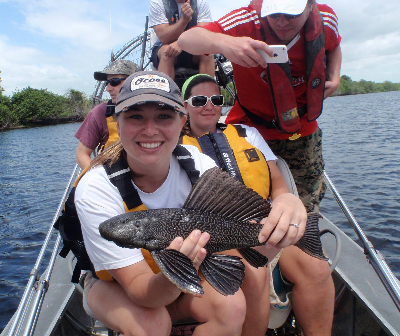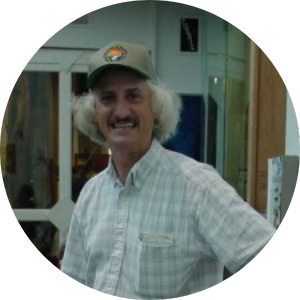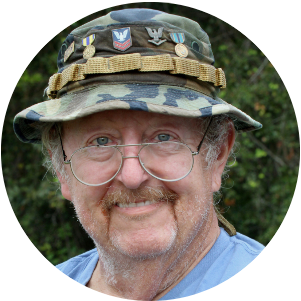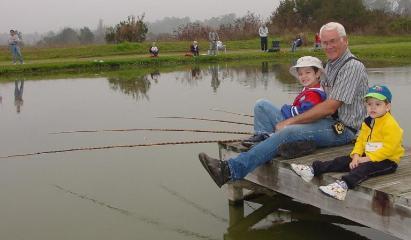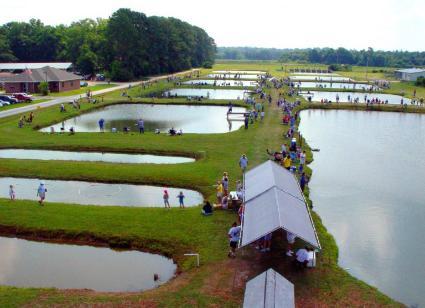On-Site Programs
FFS conducts over 100 onsite programs at the UF Fisheries and Aquatic Sciences facility each year, reaching thousands of youths and chaperones. Visiting school groups, youth clubs, and camps participate in tours, demonstrations, and hands-on environmental learning activities tailored to each group's age and interests.
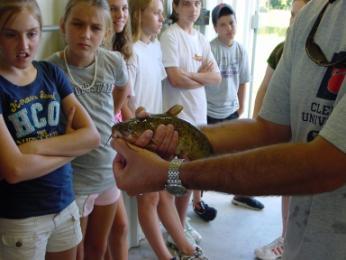
In the “fish barn,” visitors learn about the distinctive adaptations, life history, and ecology of common freshwater fish. In the dipping ponds, participants use nets to collect their own invertebrates, identify them, and discuss their unique characteristics and role in aquatic food webs. We also offer programs on aquatic plants, water quality, and aquaculture. After completing two activities, groups can fish our ponds stocked with channel catfish, bluegill, and largemouth bass.
In addition to the outdoor educational activities, the program provides a memorable first experience with the rewarding sport of fishing. For many organizations, such as retirement homes and adult day health care facilities, these activities provide valuable therapeutic rehabilitation.
Field trips cost $10 per youth for 3 hours, including two educational activities and fishing. Fishing-only visits are $7 per angler for 1 hour.
Off-Site Programs
FFS also conducts off-site programs when visiting schools for career-day seminars and educational presentations on the biology and ecology of fish, aquatic plants, and aquatic invertebrates found in Florida streams, lakes, and ponds.
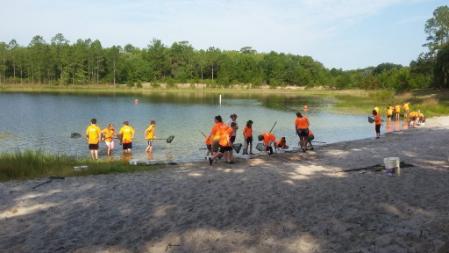
FFS biologists can travel to conduct hands-on environmental education, ecology presentations, and fishing days throughout the state. We collaborate with groups such as 4-H, the YMCA, Scouts, Florida Fish and Wildlife Conservation Commission, U.S. Fish and Wildlife Service, local nature centers, and Ducks Unlimited to conduct these educational programs. FFS hosts interactive exhibits at youth fairs, environmental festivals, and natural history museums.
Activities during off-site events vary widely. Depending on the venue, we offer hands-on, educational talks about aquatic invertebrates, fish, plants, and/or water quality. Older children and teens can experience the thrill of using seine nets to collect fish from nearby waterways, learn to identify them, and understand how scientists use sampling techniques to manage non-game and sport fish populations.
